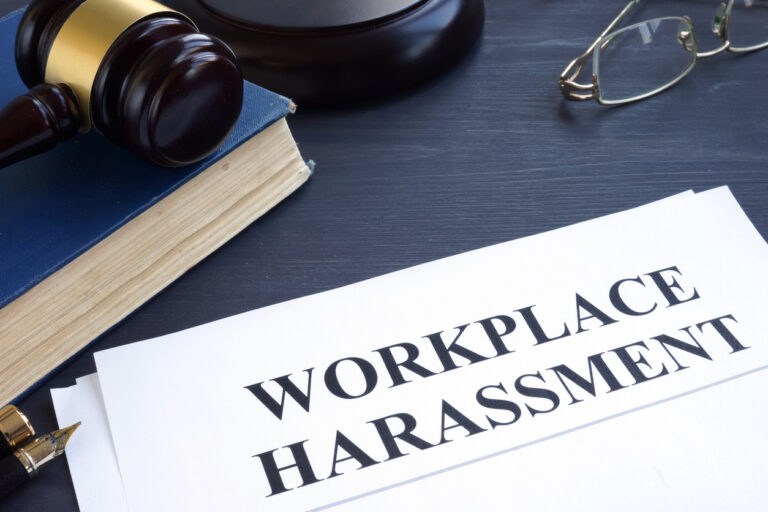PHOENIX, Ariz – The U.S. Equal Employment Opportunity Commission (EEOC) has filed three lawsuits alleging that employers in Arizona, Utah and Wyoming violated Title VII of the Civil Rights Act of 1964 by allowing sexual harassment to permeate their workplaces, including Wallers Trucking Company Inc.
The employers permitted work environments that were illegally hostile toward female employees and, in two of the cases, resulted in physical sexual assault.
“The EEOC continues its mission to protect workers across the spectrum of workplaces under the agency’s purview and to guide employers in ensuring that employees are safe, protected, and treated with dignity and respect, including to have their complaints about sexual harassment taken seriously,” said Karla Gilbride, EEOC general counsel “In furtherance of this mission, the EEOC’s recent harassment guidance is a helpful resource for employers, employees and practitioners that reflects the continued importance of this issue to the agency.”
According to a press release, the EEOC’s Phoenix District Office, which has jurisdiction for Arizona, Colorado, Utah, Wyoming and part of New Mexico, filed:
- EEOC v. Wallers Trucking Company Inc.., Case No.1:24-cv-00197-SWS in S. District Court for the District of Wyoming. The suit alleged that Waller’s Trucking Company violated federal law when its owner sexually harassed female employees over the course of several years. The owner made crude and sexually explicit comments to at least two female employees, frequently in front of their coworkers and/or over radio, and also inappropriately grabbed female employees without their permission. Wallers Trucking, a family-owned business, failed to take action despite multiple complaints and reports of sexual harassment, and instead continued to foster a hostile work environment for its female employees and fired at least two female employees.
- EEOC v. Christian Care Management, Inc., dba Christian Care Companies/Fellowship Square, Case No. 2:24-cv-02620-GMS, in S. District Court for the District of Arizona. The agency filed suit against the operator of senior living communities located across the State of Arizona after a client repeatedly harassed female employees over an extended period of time. The client made vulgar and sexually explicit comments to several female employees and propositioned female employees to engage in sexual activity with him. Female employees complained about the harassment by the client, but Christian Care failed to take prompt and adequate measures against the client to end the harassment or deter future sexual harassment by the client. Christian Care created a hostile work environment for female employees, which culminated in the client committing egregious sexual harassment and physical assault of a different female employee, including grabbing her breast and attempting to grope her vagina, the EEOC said.
- EEOC v. HHS Environmental Services, LLC., Case No. 2-24-cv-00721, in S. District Court for the District of Utah. The EEOC alleged that HHS Environmental, which provides janitorial and other services to hospitals, violated federal law when a male employee sexually harassed at least three female employees. According to the EEOC, the male employee made inappropriate sexual comments, and repeatedly attempted to inappropriately kiss, touch, and grab the female employees without their permission. Despite the employees’ repeated and persistent reports of harassment, the company took no action for over a year to curb the harassment, and retaliated against the female employees by firing two of them after they reported the harassment. HHS also retaliated against another female victim by doubling her workload until she eventually resigned due to the untenable working conditions.
“Federal law prohibits sexual harassment in the workplace, regardless of whether the offender is the owner of the business, a co-worker, a customer or a resident,” said Mary Jo O’Neill regional attorney the EEOC’s Phoenix District Office. “The EEOC has pursued, and will continue to pursue, charges of sexual harassment against employers regardless of the status of the offender. Employers have a legal duty to stop sexual harassment and to protect their workers from such egregious sexual harassment in the workplace.”
EEOC Phoenix District Director Melinda Caraballo add that the EEOC is committed to protecting vulnerable workers and will vigorously pursue relief for the victims and in the public interest.
“Sexual harassment that alters an employee’s working conditions is a violation of federal law,” Caraballo said.
Last fiscal year, the number of charges the EEOC received involving harassment jumped more than 28% to 31,354, the highest since the agency started monitoring harassment charge numbers in fiscal year 2010. Charges involving retaliation reached more than 46,000, a 31-year high. For more information on sexual harassment, please visit https://www.eeoc.gov/sexual-harassment.






